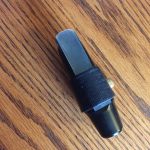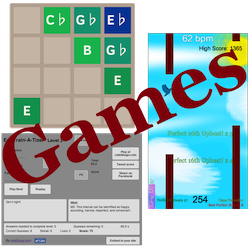Plastic Reeds Sound the Same as Cane…With Practice
I was in undergrad when I tried a plastic reed. All of my peers and teachers met the switch with more or less hostile skepticism. This skepticism became worse when my sound was clearly different because of the product. But after a few months of using plastic reeds and a lot of listening, I began to sound just like I was playing a cane reed. It just took some time and experimentation to get the hang of it. The turning point was when I used a plastic reed during my lesson and my teacher (with a masters in saxophone performance) didn’t notice until I pointed it out at the end of the lesson. She let me use one from then on.
What I Play
 The only brand I have ever used is Légère so I can’t speak for any other since I haven’t tried them (once a problem is solved I stop shopping). I play on a 4 strength Légère studio cut. This strength works for me because I need a lot of back pressure to force my throat into the correct shape for altissimo notes. That and I destroy 3.5’s in a week.
The only brand I have ever used is Légère so I can’t speak for any other since I haven’t tried them (once a problem is solved I stop shopping). I play on a 4 strength Légère studio cut. This strength works for me because I need a lot of back pressure to force my throat into the correct shape for altissimo notes. That and I destroy 3.5’s in a week.
Why Plastic Reeds are Better Than Cane
The sound is our number one priority, but we’re past that now. They sound great. You just have to put in the time with them. They are better for several reasons:
- Barometric pressure and humidity have no effect on them.
- You don’t have to suck on them to make them work*…I still do out of habit.
- They last 6 months if you practice 3 hours a day.
- Each one is exactly the same. There are no bad ones.
- They’re way cheaper because one plastic reed is worth 20-30 cane reeds in value.
- They respond in the altissimo range better.
- They’re invincible to accidental breakage.
- You don’t need to adjust them with glass, reed rush, weakening the heart, or any other nonsense.
- Cane reeds can have air pockets that cause chirping. There’s no worse sound on a saxophone than a chirp, and it can make for a very embarrassing performance if you don’t know it’s there beforehand.
- Your students can’t blame the reed for their problems (but neither can you, so there’s give and take there).
So make the switch and stop wasting your time and money! But, please, listen to my recordings so I can establish some credibility before just taking my word for it on plastic reeds. Note that every one of my recordings was done with a plastic reed.
*There is one very small disadvantage that I would love to gloss over…their performance is negatively affected by cold temperatures. But the solution there is to suck on it…so they don’t actually lose points to the cane reeds there either!

